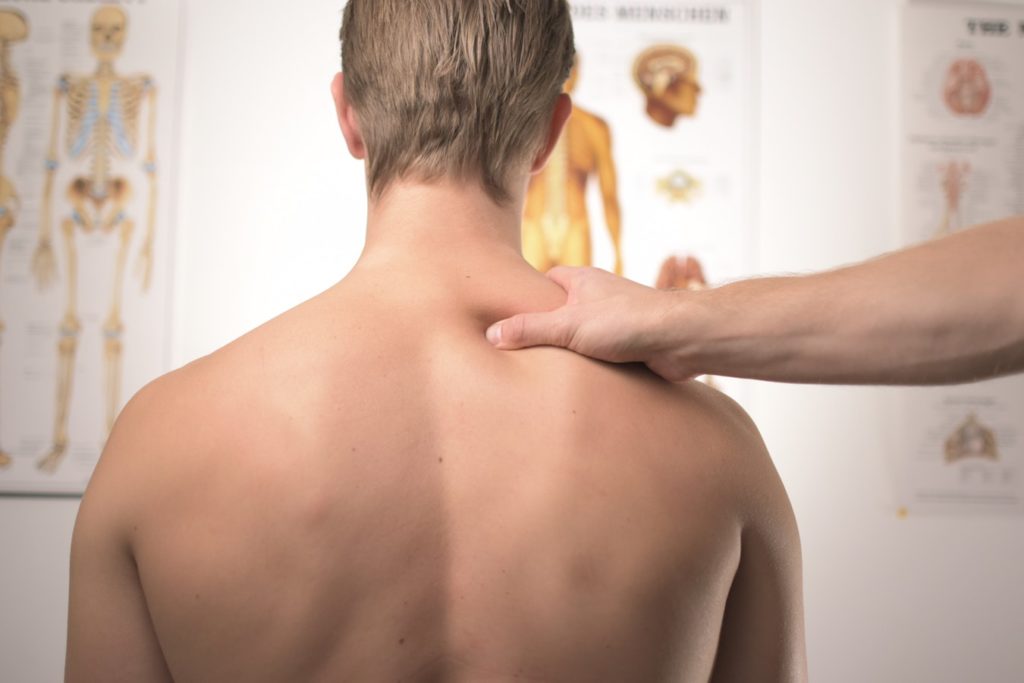Jackie Waters was diagnosed with rheumatoid arthritis in her mid-20s. She immediately made lifestyle changes to help reduce the number of prescription medications her physician wanted her to take. She made changers in her: diet; she re-organized her home, to make it easier to manage on her “bad” days. She also threw out cleaning products which contained harsh and harmful chemicals.
Anything she could change, she did – to minimize as much joint inflammation and pain as she could. Jackie wrote this article because she knows how scary it can be to be diagnosed with a chronic illness and asked us to put in on our website, to help anyone who has chronic pain. Jackie Waters hopes, as does My Aiken Body, that you find these tips and suggestions beneficial.
My Aiken Body Therapeutic Massage suggests you discuss with your Physician or Health Care Practitioner BEFORE you alter any medication your doctor has prescribed.
Coping With Chronic Pain: How to Safely Manage Aches and Pains Without Pills
 Photo courtesy of Unsplash
Photo courtesy of Unsplash
It can be shocking and devastating to be diagnosed with a condition that causes chronic pain. If you’ve recently received a chronic pain diagnosis, you might be trying to process the news while also trying to learn as much as you can about your condition and your treatment options. Try not to feel overwhelmed by your diagnosis; there are ways to cope while living a normal, happy life.
Contrary to popular belief, it is possible to treat your symptoms without taking painkillers or drugs. Just because a medication is available via prescription or over the counter doesn’t mean it is free from side effects or that you are safe from addiction. Painkillers and opioids, including many pills that are commonly prescribed by doctors for pain relief and its associated conditions, are behind the nation’s current opioid addiction epidemic.
Luckily, there are a variety of natural pain management methods that can ease your symptoms without the use of medication. In fact, many of them can help treat your symptoms from the comfort of your own home without needing a prescription. This is hopeful news for the hundreds of millions of Americans who are living with chronic pain. For instance, the American Society of Regional Anesthesia and Pain Medicine (ASRA) asserts that several treatment methods “may help with your pain which do not involve medications. These things may help relieve some pain and reduce the medications required to control your pain.”
Among the ASRA’s pill-free pain-relief recommendations are:
- Acupuncture (an ancient Chinese healing modality that involves a trained professional gently placing small needles on the surface of the skin)
- Exercise (only under supervision of a trained physical therapist)
- Transcutaneous electro-nerve stimulator (TENS) units, which are special pads that are placed on the skin to stimulate the areas around the pain
Of course, there are many other healthy, alternative modalities for treating pain besides the three listed above. You might also consider a visit to the chiropractor; a healing massage; gentle, restorative yoga; craniosacral therapy; or even a daily meditation practice.
Any type of “chronic” diagnosis, whether related to pain or another illness, can cause a “rollercoaster” of emotions, according to the American Psychological Association. While coping with the initial shock of your diagnosis, it’s very common to feel some level of distress and despair. You might also feel increased stress and anxiety, which can actually contribute to increased pain symptoms. While stress management is important for everyone, it is especially important for those who are living with chronic pain and its related conditions.
One thing that might help is creating a healthy, peaceful home environment. Some ways to calm your home environment—and soothe your mind—might include playing your favorite music, having a quiet area in the home where you can enjoy some “alone time” each day, or creating your very own meditation space. To make your home even more serene and relaxing, you could declutter your closets and your personal belongings, which can contribute to stress reduction. Rearranging your closets and cabinets not only helps you stay organized; it also eases your mind and gives you one less thing to worry about.
Remember, any amount of self-care counts, even if all you have to start with is five or ten minutes per day. You might not always have the time or money for acupuncture, but almost anyone can afford five minutes for a warm bath or some deep breathing. As you start to prioritize your own health and relaxation, it will become a healthy habit that will contribute to your overall happiness. Hopefully, it will contribute to the gradual reduction of pain symptoms as well. Good luck!

